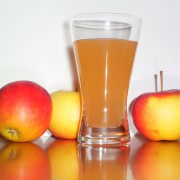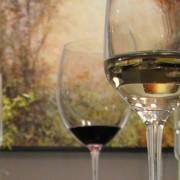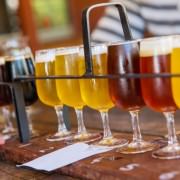Sell more wine. It’s the law.
Okay, okay. It’s not illegal to have bad wine sales, it’s just a darn shame. However, today’s post offers a method for using a law of psychology to sell more wine. Get ready to learn all about the Law of Reciprocity.
What’s the Law of Reciprocity?
This psychological law states that when you give people something, or you do a favor for them, they are much, much more likely to return the favor. Apparently, this human behavior is a throwback from our prehistoric days, but it affects us all the time in the modern world. Don’t believe me? Here’s an example of this law, using something you’ve probably experienced recently.
An offer you can’t refuse
It’s summer, which means your friends are either moving or building a new deck or vacationing (or whatever). It’s great that your friends are all doing exciting things–but you’ve probably been suckered into helping them lift heavy furniture or going to Home Depot with them or cat sitting. It wasn’t like you wanted to do these things. You have a restaurant and that gives you little enough time to keep up with your life. But they brought over that soup when you were sick, or they came to visit you at work just to cheer you up. Then, after doing something super-nice, they mentioned that they needed some help with their project. You couldn’t refuse them, could you?
The Law of Reciprocity was studied by Dennis Regan in 1971, and he proved that people who were given a free soda by a complete stranger were more likely to purchase a large quantity of raffle tickets from that stranger.
This is also why you see so many free samples in the grocery store, and why you feel plagued by guilt when you don’t buy whatever it is those grocery store people are giving away. Believe me now?
How this works for you
I’ve convinced you that this law is a real thing, but how can you get it to work for you in your restaurant? Easy: you do small favors for your guests. Sure, you can give them samples of food, but they’re going to buy food anyway, so what does that do for you? No, you want them buying wine so that’s what you have to give away. Here are two ideas you can use to increase your sales.
1. Pour them a free taster
Before your servers take your guests’ drink orders, have them come up to the table with a couple bottles of wine (a red and a white) and offer a free sample of whichever the guests prefer. If your servers present the wine with all the pomp and circumstance of a proper sommelier, your customers will feel very pampered… and they’ll want to continue being pampered. Plus, after getting such a nice gift from your restaurant, they’ll want to return the favor. How can they do that? By buying a bottle for themselves, of course.
Note: You don’t have to offer a really nice wine for this to succeed. Your house red and white are probably good enough. The people who want a nicer wine will order one, and your guests who haven’t yet developed their palates will find that your house wine prices suit them just fine.
2. Leave a bottle on the table
Don’t want to give out samples? Try hinting to your guests that they should order some wine. Leave a bottle with glasses already all set up (and put a tasteful candle nearby). Your guests’ attention will repeatedly be drawn to that area of their table and they’ll be unable to resist the temptation.
Note: Don’t use a screw-top wine for this purpose. Even if your guests understand that screw-top wines are fine these days, you’ll still want to be able to monitor the ages and inebriation levels of your drinking customers. A corked bottle is the perfect opportunity for you to check their credentials before you sell to them.
Try one of these ideas tonight, and try a different one tomorrow night. You can compare your sales volumes quickly and easily, and you can revel in the fact that you increased your wine sales so easily. Hey, you’ll need to be reveling about something when you’re stuck hauling your friend’s couch up four flights of stairs this summer. Darn that law of reciprocity!
Photo licensed by Elvert Barnes
- Why Your Wine Menu Is Scaring Your Guests - February 27, 2015
- How to Host a Better Restaurant Week and Get More Customers - February 23, 2015
- Choosing Your Restaurant Wine Glass – 3 Approaches - February 16, 2015









